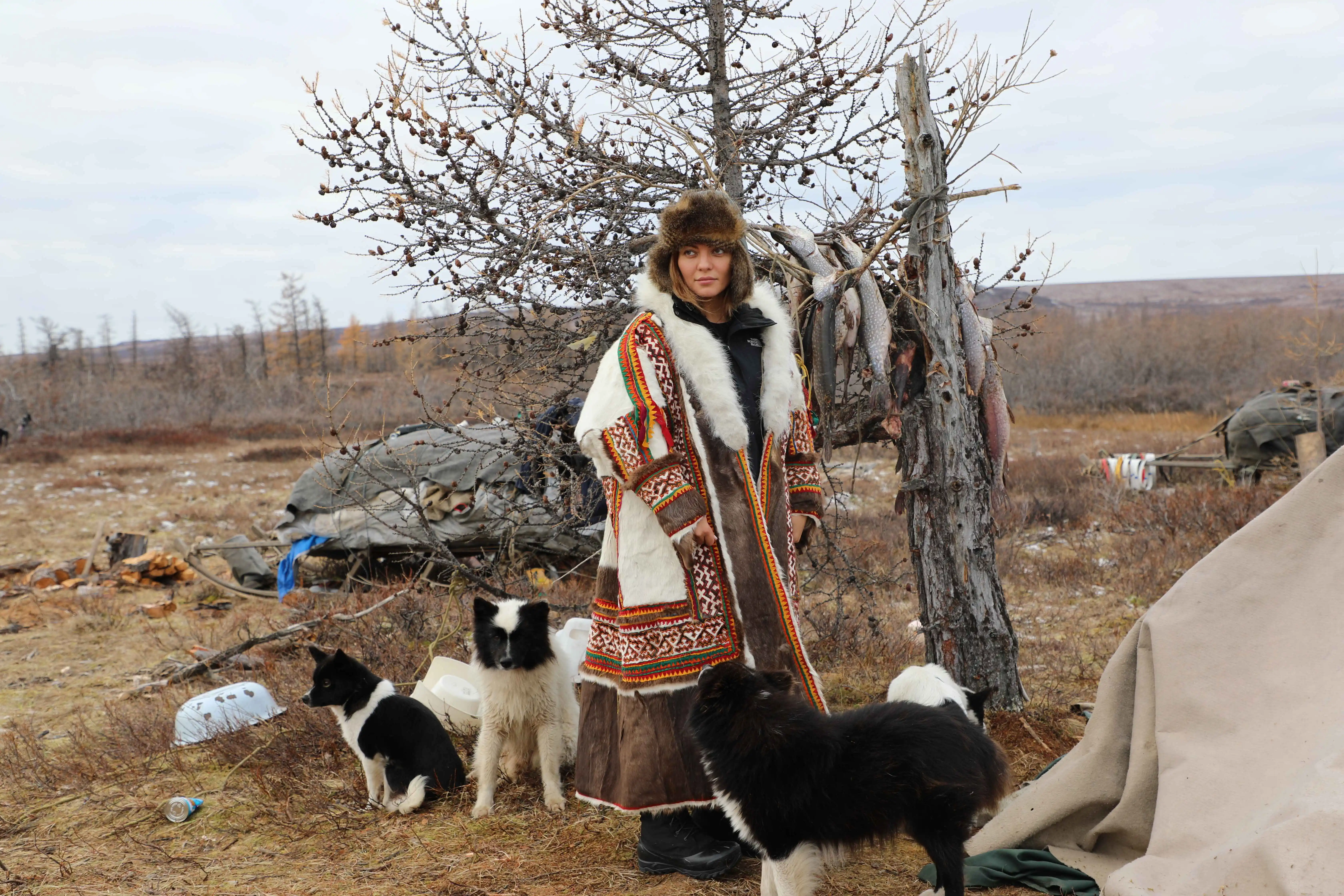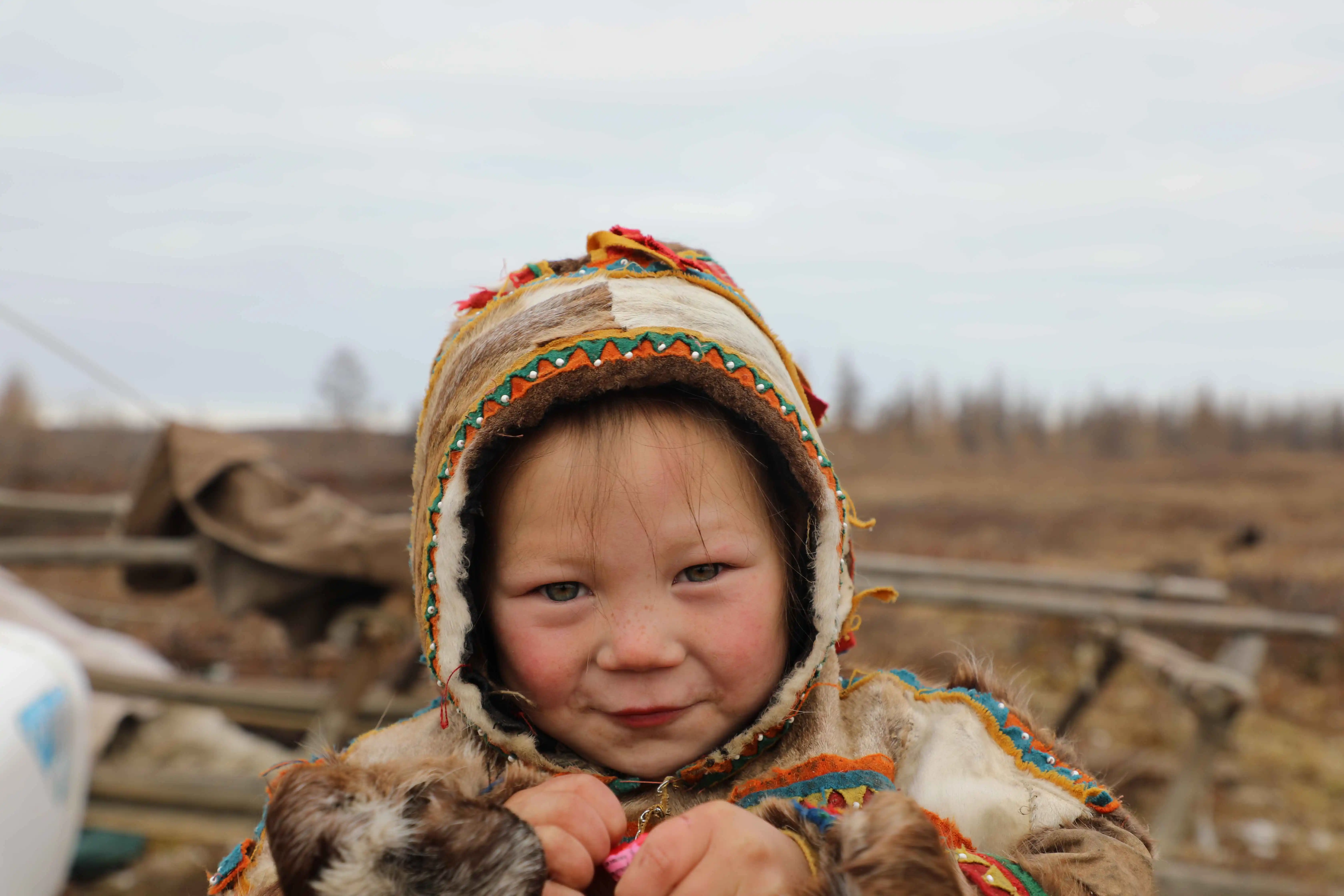Ever since my trip to the Antarctic, where I witnessed the horrifying experience of extinction, I have been looking for the last signs of that space’s “diversity” wherever I go. A friend sarcastically calls me a “seeker of vanishing things.”
The experience of travelling the world has illuminated one thing for me: globalization is erasing the last signs of differences in every space, differences in everything: nature, religion, lifestyle, and even people.The first images captured by Chris Marker in the documentary essays from the 1950s caught my attention. Images between sleep and dream, where giants slowly emerge, resembling our childhood dreams, and I, fearfully, gazed at them.The industries were in operation, leaving black stains on the enchanting nature.
Once, I found a new concern: a journey to the last inhabitable point on Earth in Yamal, witnessing the final moments of a way of life. I wanted to be a tangible witness to narrate this life for future generations.

Encountering Yuri Vella: Defending Tradition in Yamal
When I finally decided to go to Siberia and be among the Nenets, I met Yuri Vella. A poet who, in the 1990s, had relocated with his family to the tundra to revive the traditional Nenets way of life and become a reindeer herder. He had organized several large protests against the expansion of the oil and gas industry into Yamal. He argued that the energy industry was destroying the environment, killing North Siberian deer, and displacing and harassing the indigenous people. Yuri became so famous that 2008 the BBC produced a film about him titled “Yuri Vella’s World.”
I felt strange when I arrived in Salekhard- The capital of Yamlou-Nents Autonomous State in Russia. During the days of the coronavirus, the embassy hotline wasn’t operational. I searched hashtags like Siberia, Yamal, Salekhard, and Nenets until I reached Zelfira. I only had video calls with her. The warmth of her face overcame my doubts, and I eventually found my way to Salekhard with just a phone number. Later, I contemplated the extent of my insistence on making this journey. Almost all my friends and family opposed this journey, or I should say, they objected to the idea of me throwing myself into the unknown without any support. For me, fear and enchantment coexisted. I had taken a simple camera with me. Unlike other similar situations in my travels where it’s hard for me to sit in front of a camera or see through the lens instead of with my own eyes, I held the camera towards myself this time. Later, I thought I was probably creating a visual testament for my daughter. Are there moments when you’ve put yourself in danger and thought if it’s worth it? We were lost. There was no sign of finding the way. At that moment, I was thinking about the world – my daughter – is it worth it?
I counted the dangers that I might face in my mind; they have been mentioned in many personal travelogues: getting lost, kidnapping, theft of property, theft of identity documents, human trafficking, murder… I was laughing. I hadn’t taken them seriously for even a moment. Until now, I had seen warm-hearted people whose hearts were warm despite their tough faces in that cold. Instinctive trust in people is sometimes the only way. I closed the book on the murder and robbery of a tourist in Russia. Someone had followed us. We were moving towards the tents with him behind us. The sound of dogs and the sight of the polar lights injected fresh life into my frozen veins. I took a deep breath and said, “Hey, mature woman! Don’t be afraid. You’ll return safe, sound, and full of diverse experiences.”
The history of boredom should be written here. I figured this out one day after setting foot in the tent. I was sharing a tent with Zulfira and a family of five.In the morning, the men cut firewood and collected the deer’s livestock. Stonella, the mother of the family, prepared the deer meat as stew for the three meals: breakfast, lunch, and dinner. In her spare time, she grinds deer leather with basic tools. Two three- and five-year-old girls were helping to collect dry bushes.
One morning, I woke up, and half of the tent was packed. We loaded all the gear onto the sleds. We carried the heavy tent poles – which were quite heavy. The feeding ground for the deer was depleted, and we had to go to a point where the deer could feed. Two hours later, we unpacked the belongings, and the tent was set up again by night. The transit places always fascinate me: airports, train stations, and bus terminals. I hear from many that they become sad or anxious in these places. For me, these places mean something has ended, and a new story is about to begin. It’s a kind of anticipation. Have you experienced these unpredictable events? The experience of nomadic life is the experience of constant migration, a life that changes every moment; every moment is a station. The attraction of such a thing has drawn me here? Or am I looking for an answer to why nomadic life is disappearing?
I wrote about the journey’s end in my diary: “A timeless landscape. Activities may be repeated traditionally for a thousand years. Cultural habits are passed down from generation to generation. It’s as if history has stopped here. It’s full of various emotions. It’s amazing, sad, exciting, poignant, and enthusiastic. It’s hard, it’s easy. I just know my heart longs for this place.”

A Glimpse of Nomadic Life: Living Among the Nenets
In the tundra, people fall into two categories. Those who want to migrate strongly support the Nenets culture. They send their children to Nenets schools, love deer herding, and have no interest in city life. On the other hand, many young people have come to the cities, become workers in the oil and gas industries, and see no reason to continue the relatively primitive way of life.
Life becomes more challenging for the first group every moment. The communal lands of the tundra are seized to establish facilities. The warming weather, higher than average, is causing the disappearance of the tundra. The food for the animals has diminished, and reindeer herding is no longer economically viable. The Russian government influences its autonomous states. The oil and gas industry is vital for it. I ask the people, but they seem to haven’t heard; they look at me suspiciously. Here, oil facilities are like a forbidden whisper in the ears.





